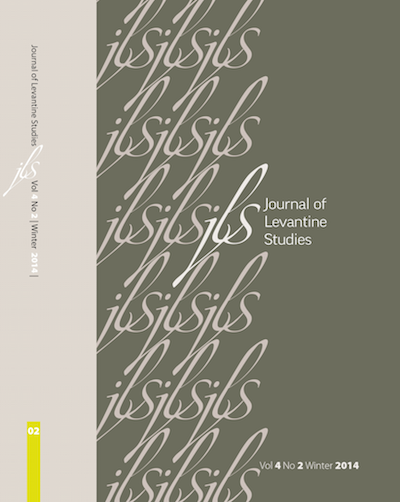Journal of Levantine Studies
Unable to display Facebook posts.
Show error
Type: OAuthException
Code: 190
Please refer to our Error Message Reference.
Vol. 4, No. 1 Summer 2014
dock-ument promotes theoretical discourse on topics related to various aspects of the Levant through the publication of personal essays, lyrical prose, poetry, and other expressive texts. It encourages various perspectives and unique voices, so they can be heard in a way that is not confined by the constraints of scientific discussion. The name, dockument, expresses the connection between text and context, between the pier, the home dock, and the ship of thoughts and reflections that will sail, we hope, to various interesting places.
- + Articles
-
- + Dossier
-
- + Dock-ument
-
dock-ument promotes theoretical discourse on topics related to various aspects of the Levant through the publication of personal essays, lyrical prose, poetry, and other expressive texts. It encourages various perspectives and unique voices, so they can be heard in a way that is not confined by the constraints of scientific discussion. The name, dockument, expresses the connection between text and context, between the pier, the home dock, and the ship of thoughts and reflections that will sail, we hope, to various interesting places.
- + Reviews
-
Journal of Levantine Studies (JLS) is an interdisciplinary academic journal dedicated to the critical study of the geographical, social, and cultural settings which, in various periods of history, have been known as the “Levant.” The journal is published biannually in English in print and online by the Van Leer Jerusalem Institute.


